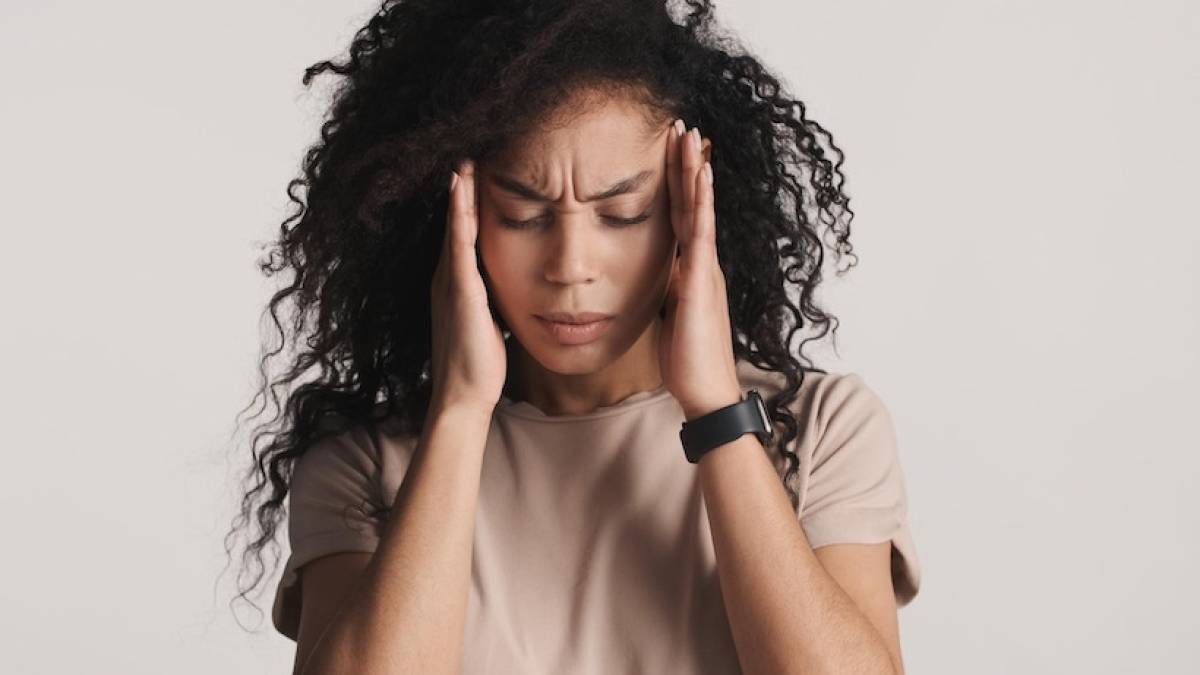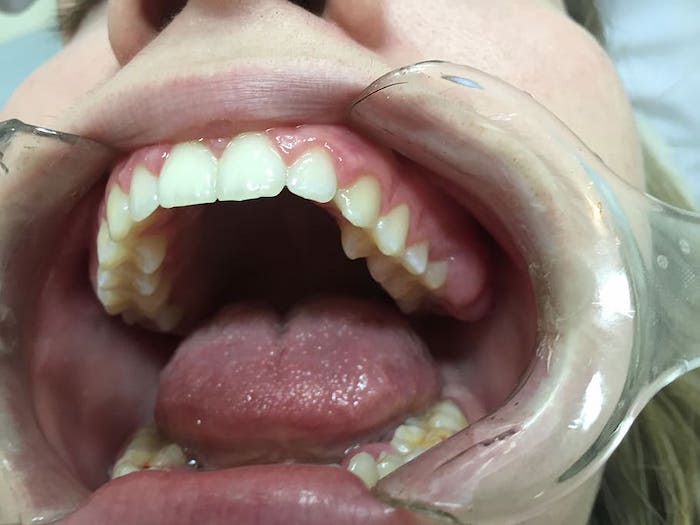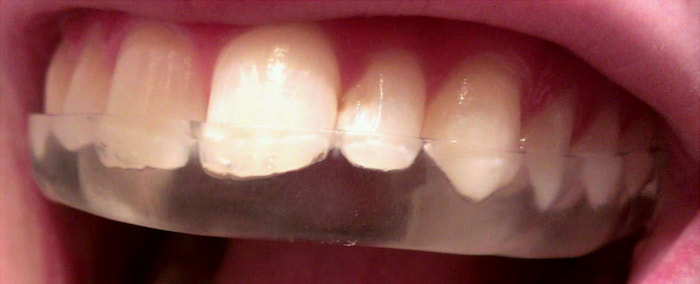How Good Oral Health Helps in Preventing Migraines

Many common oral health problems can trigger migraines. For example, bruxism, which causes involuntary habitual grinding of teeth (typically during sleep) and sore jaw muscles, can cause headaches. In fact, if you have a history of headaches and migraines, you may want to schedule an appointment with your dentists as soon as possible.
If you suffer from chronic migraines, addressing underlying oral health issues can help reduce the frequency and severity of your headaches. Oral health is really important in many ways for our better well-being, which means it is essential to visit a dentist or a dental implants center for regular check-ups to improve your oral health and prevent headaches.
Those who suffer from constant migraines are familiar with the debilitating effects of these attacks. The good news is that a dentist can prescribe many medications for these ailments to alleviate the pain.
Address Underlying Oral Health Issues to Alleviate Migraines

Several health conditions can lead to headaches and migraines, and poor oral health can also contribute to more frequent and severe attacks.
Fortunately, seeking professional help from a dentist will give you a broader idea about how your unhealthy oral habits may cause unbearable headaches and migraines.
Here’re some insights into the relationship between oral health and headaches, and how addressing common underlying oral health issues can alleviate severe and chronic migraines:
1. Broken or Cracked Teeth
If your wisdom tooth is impacted, it can cause pain, damage other teeth, and trigger a severe headache. Fortunately, it is possible to remove damaged teeth to eliminate problems.
If you've had your wisdom tooth removed, it can immediately relieve pain and protect your teeth. It's always advisable to consult a periodontist or visit a nearby dental implant center.
The dentist can detect any dental issues you may have that are causing your migraine symptoms. Visit your dentist regularly for better oral health as well.
2. Weak or Misaligned Jaw
A weak or misaligned jaw leads to bad jaw movements and discomfort, which can also cause migraines. If you have a bad bite, it can cause pain in the cranial area. The jaw muscles are responsible for the pressure that leads to a headache. Hence, a bad bite can trigger a migraine.
In addition, teeth grinding and clenching can cause muscle strain and chronic headaches. These two factors may be the reason why you have recurring headaches. If you suffer from them, you should consider addressing these oral health issues and prevent them as early as possible.
TMJ, or temporomandibular joint disorder, is a condition that limits the range of motion in the jaw. The ear and jaw muscles are strained, and pain can become chronic when this happens. When this condition is ignored, it can even lead to a migraine.
If you have pain and or stiffness when chewing food and opening and closing your mouth, it may point to jaw problems. The pain or stiffness may be coupled with a persistent clicking noise in your ear as you chew.
Simple self-care practices like opening and closing your mouth to stretch the muscles may help in easing symptoms, but visit a dental center for further checkup and treatment.
3. Oral Bacteria Build-Up
The bacteria in your mouth may also be the cause of migraines. A build-up of oral bacteria can increase the levels of nitric oxide in the bloodstream, triggering a migraine.
Moreover, oral bacteria are responsible for the widening of blood vessels and reducing muscle tension. These factors can also contribute to the severity and frequency of a migraine.
If you do not like the idea of brushing your teeth regularly, you can try chewing gum with xylitol, which is a natural sweetener. But always remember that brushing your teeth regularly will prevent the build-up of bacteria and occurence of other dental problems.
In addition to regular brushing and flossing, you should visit a nearby dental implants center for teeth cleaning. While oral bacteria can be responsible for your undesired migraines, the benefits of improving your oral health to prevent migraines far outweigh the risks.
4. Oral Infections
Oral infections are caused by harmful germs and bacteria, and they can develop anywhere in or around the mouth. A bad taste in your mouth or bad breath may be an indicator of an infection, as well as a swollen gum that is filled with pus.
Some of the infections affect the blood vessels in your teeth, which are essential for the proper functioning of the jaw, and can cause painful sores and inflammation in the mouth. This inflammation can eventually reach the trigeminal nerve, which is responsible for the feeling in most of your face. If the nerve is inflamed, it can trigger a migraine.
Fortunately, treatments for oral infections exist and can lessen the frequency and severity of migraine and headaches. It is, therefore, vital to see a dentist every six months or so to prevent and treat any oral infections. Besides the obvious physical symptoms of oral infections, dentists can also diagnose the condition's underlying causes and prescribe effective treatment.
5. Tooth Decay and Cavities
Many people have a history of dental problems, including tooth decay leading to cavities, which can also be a cause of chronic migraines and headaches. If this is the case, you should consult with a dentist as soon as you notice any tooth decay and cavities.
Cavities, also called caries, are permanently damaged areas in the hard surface of your teeth that develop into tiny openings or holes. They may be caused by a combination of factors, such as bacteria in the mouth, sipping sugary drinks, and not cleaning teeth well.
In addition to checking your teeth for decay, an oral health professional will check the teeth for impacted wisdom teeth and root canals. If you suffer from frequent headaches, it's essential to visit a dentist to ensure your teeth are in good condition and not causing the problem.
Importantly, a good oral health habit is essential for maintaining healthy teeth and even treating recurring migraines. Floss your teeth daily to remove plaque and bacteria in your mouth. Oral bacteria can produce nitrites, a form of nitric acid, that can affect the functioning of the temporomandibular joint. These acids may also lead to tooth decay and can trigger a migraine.
6. Inflamed or Infected Gums
You may also want to check your gums for inflammation or infection. These can cause heaving and other problems. If you have these problems, you should schedule dental visits regularly. It's best to see a doctor as soon as possible to prevent inflamed or infected gums.
Taking care of your teeth and gums is vital to your health and overall well-being. Inflammation in the mouth and gums can trigger migraines. An experienced dentist can help you identify any underlying dental conditions that are causing problems and contributing to your migraines.
A simple dental exam can identify the cause of your frequent headaches, while a good dental plan can help to avoid many dental health issues. Practice good oral health routines to prevent gum infections and chronic migraines. It's well worth it to take care of your teeth and gums.
7. Mouth Guard

Vacuum-form mouth guard. Photo: Wikimedia
To alleviate migraine symptoms, your dentist may recommend a mouth guard that protects teeth and gums and provides relief for your jaw muscles.
While you may be able to use over-the-counter mouth guards for migraine prevention, it is recommended to visit a dentist regularly. This way, your dentist will be able to examine your teeth and jaw and prescribe a mouth guard that is customized for your particular needs.
It is also important to remember that an over-the-counter mouth guards can only help you temporarily, and that you should ideally use a custom mouth guard. A well-guarded mouth will help you prevent possible damage to teeth and keep your jaw protected and pain-free.
Conclusion
As you are now aware, your oral health can be responsible for severe migraines and an endless list of other health issues. Help your body combat migraines and improve your overall health and quality of life by maintaining good oral health always.
If you or someone you know suffers from chronic migraines or headaches, consult an experienced dentist and your problems may just be solved. Visiting the dentist may also help you prevent the onset of severe toothaches and other painful health issues as well.




















